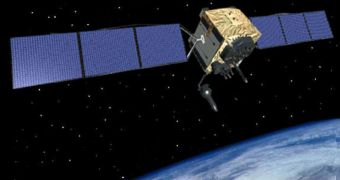The first of twelve Global Positioning System (GPS) IIF satellites ordered by the United States Air Force has finally been commissioned, officials at Boeing announce today, August 30.
The new instrument is added to the active 31-satellite GPS constellation already in orbit, but is the precursor of the next generation of satellites of this type.
The main job that GPS IIF-1 has is to provide accurate navigation, positioning and timing information. These data will be used by more than 1 billion military and civilian users globally.
“Putting the first next-generation GPS IIF satellite into operation is a significant step forward for the Air Force and the millions of warfighters and civilians who depend on this vital system,” explains Col. Bernard Gruber.
“Now that IIF-1 is operational, military and commercial receivers around the world can begin using the satellite's improved signals to more accurately determine their position,” adds the official, who is the commander of the USAF GPS Wing.
The satellite itself was launched on May 27, 2010, and has passed all of its commissioning stage tests successful. Overall, it provides new and enhanced capabilities from the former generation.
Some of these new capabilities include a military signal resistant to jamming, clearer signals due to the use of atomic clock technologies, as well as protect signals destined specifically for airlines.
Additionally, the new satellites will have a special bandwidth dedicated to safety-of-life applications.
“Boeing has built 40 of the 61 GPS satellites launched since 1978, and GPS IIF is a great addition to that long legacy," says Craig Cooning.
“These satellites make a difference by adding new levels of power and precision to GPS services. The IIF series will be the backbone of the constellation for the next 12 to 15 years,” adds the official, who is the vice president and general manager of Boeing Space & Intelligence Systems.
The reason why it took three months to assess and validate the new system is that it was the first of its series. If Boeing is to built the next 11 GPS IIF components, then it needs to ensure that the satellites function flawlessly .
Boeing has extensive experience with building spacecraft, as one of the world's largest defense, space and security businesses. It has been collaborating with the US government for many years.

 14 DAY TRIAL //
14 DAY TRIAL //